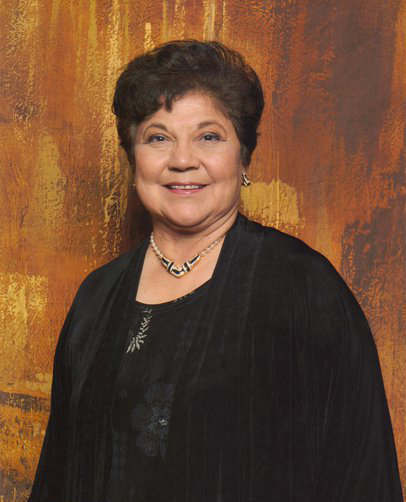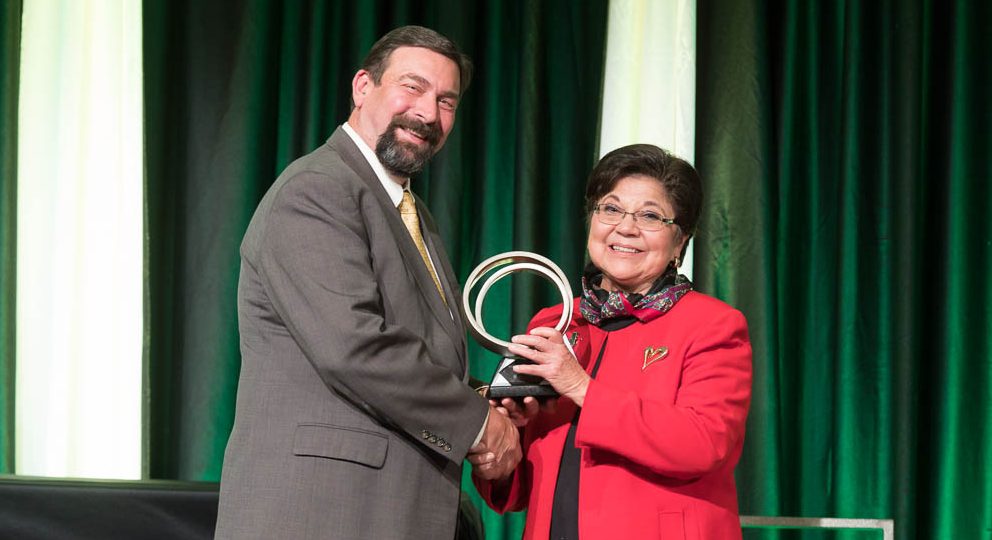“I’d like to come talk to you about my candidacy.”
“Oh, you don’t need to do that Polly, because I’m not going to vote for you anyhow.”
“May I ask why?”
“I don’t believe women should serve in the state legislature.”
It was 1974 and Polly Baca (’62, political science) had just announced her candidacy for a seat in the Colorado House of Representatives. In spite of her already formidable resume, she still faced the discrimination that she experienced her whole life for being a Latina woman.
Early Lessons in Prejudice
Baca grew up in a mixed-race neighborhood in Greeley where her grade-school days were made up of girls taunting her and boys throwing snowballs at her, shouting “dirty Mexican.” Baca’s mother would work winters in a potato chip factory because the dime stores - with signs in the windows that said “No Mexicans or Dogs Allowed” - wouldn’t hire Mexican American women.
Baca could have lost hope in the face of such discrimination but instead she used those experiences to fuel her passion for change and to give a voice to others who also faced prejudice.
“I was absolutely certain as a little girl that it [making change] was all up to me. I had to excel. I had to get good grades. I had to get scholarships. I had a great burden about how I had to do it. That’s how I responded to that bigotry,” she says.
In high school, after hearing about a classmate’s successful uncle, Baca decided then and there that she wanted to be a role model for her community. In 9th grade, she took an aptitude test that said she might be well-suited for law and decided to write a paper about women lawyers. To her discouragement, she found that there were only five women lawyers in America and they were all corporate lawyers. “At that time there were no trial lawyers because the perception was that no one would listen to a woman in the courtroom,” she remembers.
“I can’t make a difference this way,” she thought. Her high school physics teacher, Dr. Shoemaker, introduced her to Madame Marie Curie, the double Nobel Laureate, and she became awe-struck. “I can make a difference as a physicist.”
Or so she thought.
In 1958, Baca entered Colorado State University as a physics major and got involved right away on campus. She became the secretary of the freshman class, the vice president of the Young Democrats, and a member of the International Relations Club.
Toward the end of her freshman year, Baca was walking across campus with John Leo Cefkin, who was the advisor of the Young Democrats and a political science professor.
“Polly, how many organizations do you belong to that pertain to your major?”
Not a single one.
After talking to Dr. Cefkin, it was clear that her passion to effect change would be better suited in public service. She changed her major to political science and never looked back.


Making a Difference. Making an Impact.
Venturing into uncharted territory, Baca became the first of many things: the first woman elected to chair the Democratic Caucus of the Colorado House of Representatives; the first minority woman and first Hispanic woman elected to the Colorado State Senate; and the first Hispanic woman in the nation to serve in both the House and Senate of the state legislature.
She also made huge strides for the Hispanic community as the Executive Director of the Colorado Hispanic Institute. While there, Baca developed a statewide multicultural leadership enhancement program called Visiones. She also served as the president and CEO of the Latin America Research and Service Agency (LARASA) that worked to improve the lives of Latinos in Colorado.
Throughout these varied experiences, Baca prioritized combating the same sorts of prejudices she faced as a young woman in Greeley. “The pain of that bigotry created this passion that I have to change the way people treat one another. As a young person I thought of it in terms of the way people treated Mexican Americans, but as I got older, what I realized is we need to change the way we treat each other regardless.”
Born on February 13, Baca’s birthday falls between Lincoln’s birthday and Valentine’s Day, both of those boxes filled in with red to mark their importance. For years, Baca would joke that she wanted to make her birthday a red letter day, too.
She may not have her name in red on the calendar yet but she has been recognized for her contributions to bettering the lives of women and Latinos/as. In 2000, Baca was inducted into the Colorado Women’s Hall of Fame. The Denver Post named Baca as one of the 75 Most Influential Women in Colorado in April 2012. And most recently, she received the Charles A. Lory Public Service Award at CSU’s Distinguished Alumni Awards ceremony in October 2017.
In addition to her two children, Baca’s proudest accomplishments are the glass ceilings she broke throughout her career. “The greatest gift God ever gave me was being born a female child to a poor Mexican American family in a bigoted community, because without the pain of that bigotry I would have never had the passion in my soul to try to change what existed. And because of that, I had this amazing life,” she says.
Learn more about the Department of Political Science.
